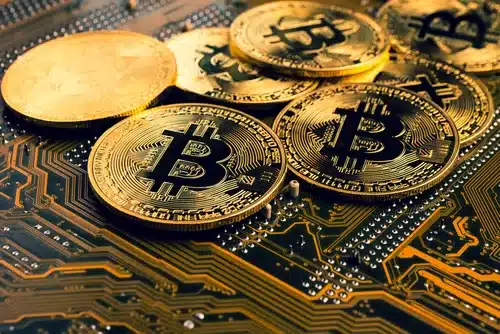This upgrade could make it harder for authorities to censor Bitcoin

The enduring popularity of Bitcoin is largely due to the fact that no third party controls it, including governments. But even if that is the case, currency developers are constantly pondering how powerful entities can poke holes in the technology, attack it or bend the rules.
A potential attack vector on Bitcoin is that the nodes on the network communicate with each other via unencrypted traffic. Powerful interests such as governments and Internet Service Providers (ISPs) can use this weakness to perform “man-in-the-middle” attacks on Bitcoin nodes, where they can secretly gather information about sent transactions.
To combat this, BIP 324 is a long-running Bitcoin Improvement Proposal to encrypt traffic between nodes on the Bitcoin network. This makes network metadata, like where a transaction comes from, more private, making it harder for snoops to spy on what users are doing.
The project was revived in 2021 by Bitcoin Core developer Dhruv Mehta, who followed up on the work done by former Bitcoin Core maintainer Jonas Schnelli over the years.
And the project is nearing completion. Most of the code is already written and Bitcoin users are already testing the code on the main Bitcoin network. It just needs more developers to test and review the changes to get it completely over the line.
Censoring Bitcoin
Mehta has been pushing to bring BIP 324 to life because he sees it as an important change to keep Bitcoin out of the control of powerful entities. If powerful entities with access to what users are doing online, such as ISPs and governments – can passively figure out what nodes are up to and where transactions are coming from, they can easily be stopped or “censored”, something Bitcoin was expressly designed to do avoid.
He sees this type of attack as increasingly likely as Bitcoin grows. He explained that the “philosophical reason” for working on BIP 324 is because governments will try to figure out how to stop Bitcoin if it continues to gain momentum.
A natural target would be Bitcoin “nodes,” the thousands of computers run by volunteers around the world that run the Bitcoin software. These nodes are what make up Bitcoin behind the scenes.
“If they can attack nodes, they can make it very difficult for you to use Bitcoin,” Mehta explained. “They can blackout your node. They can identify that you’re running a Bitcoin Core node. They can identify the source of transactions. They can make it very difficult to run the node.” explained Mehta.
Although it’s not just governments he’s worried about, but any entity with enough resources to carry out such an attack.
“I’m less interested in who can do it, I’m more interested in what’s possible to do, he said. “If something is possible and there’s an incentive to do it, any entity can do it. It’s easy to speculate about governments because they have seemingly endless resources, but could it be ISPs? Maybe. If the shadow banks are affected, could it be them? Maybe,” he explained.
Adding the list higher
That is not to say that BIP 324 will completely prevent this type of attack will end with BIP 324. Bitcoin is a permissionless system. Anyone can participate by running a node and connecting to other nodes in the network. “A man-in-the-middle attack just looks like another node. You can’t really stop it,” Mehta said.
But BIP 324 makes it much more difficult to collect this data. The attacker must connect to – or “man-in-the-middle” – each node from which it wishes to gather information.
Not to mention, without BIP 324, an adversary could gather information about these nodes without even being noticed. With BIP 324, it is easier to notice when an attacker tries to collect this information, because they have to make explicit connections to each node they want to collect information from.
“You are no longer a passive adversary who can do this covertly,” Mehta said.
Making all these individual connections is also much more expensive. “If you raise the bar from passive to active, then it takes a lot more resources to do these things, so what happens is there has to be a bigger reason to do it.” Mehta said, adding, “Today [attackers] can go after very small amounts of Bitcoin because they can potentially be so targeted with it.”
Implementation of BIP 324, once implemented, will make Bitcoin stronger, although it will not completely eliminate the wipeout attack vector. “I want the worst case to be less bad,” Mehtahe said.























